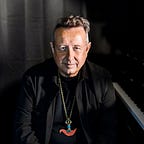A Reflection on My Childhood Music Lessons
Some of my earliest memories are centered around the piano. I have an older sister and three older brothers, the eldest being only 7 years older than me. My older sister studied elocution, but as each of the boys turned 7 years old we began piano lessons. My lessons began in 1964.
It was one of my parents’ priorities that each of us would play the piano. Both of my parents were music lovers, and they wanted us to have a recreational, entertaining relationship with the instrument. As such, by the time I was born there were already piano lessons and daily practice going on in our home.
Our piano teacher was a man called Frank Forbes. He was an outstanding pianist. He’d been strongly influenced by renowned American piano icon, Carmen Cavallaro, (http://en.wikipedia.org/wiki/Carmen_Cavallaro). Frank was extensiveley formally trained. He could play many styles of music, and had the ability to instantly create fabulous, beautifully voiced arrangements of any piece of music we wanted to learn. As such, we grew up playing great arrangements of the popular pieces of the day.
Lessons, like most practices in our home, had a structure to them. Each Saturday morning, Frank would come to our home and, one by one, we would each have our piano lesson. During the week it was, quite simply, a requirement that we practice for 20 minutes per day, 6 days per week. I don’t have one memory of me or my brothers ever protesting about, nor questioning, the fact that we were required to do this. It was never an issue or point of contention, it was simply what our parents required of us, and we did as we were required to do.
An interesting point to note is that, having been around music education, in many forms, throughout my entire life, and having spoken with and knowing so many people who tried to learn piano but never really learned how to play, how intriguing it is to consider the fact that, to this very day, my brothers and I all still play piano. It’s a lifelong companion for each of us.
Here’s my brief bullet list of why that is:
• Music, in general, was an important presence in our parents’ lives
• Having their children play music was a priority for our parents
• We had a great teacher who loved to play
• Our teacher always treated us with kindness and respect, and was never critical
• We actually ‘played’ the instrument — great-sounding songs from the very beginning
• We lived in a requirement-based home, and it was a requirement for us to practice daily
• Each of us stayed in lessons for at least 8 years (in my case, many more).
There’s certainly more to say about this, and even if the list above is only partial, I think I’ve touched on the crucial components.
Frank died before I ever brought Simply Music to fruition. He played a crucial role in who I am as a musician and educator, and his contribution to me has ultimately contributed to populations of students all over the world.
I’m thrilled that Simply Music was alive and well, with a global community of teachers and students, before my Father passed away. And I love the fact that he and my mother experienced the contribution they made as a result of their stand for me to have music-playing in my life.
For every student out there who is having lessons — Thank you for having lessons. Thank you for practicing, and thank you for playing. It will make a difference in your life, for the rest of your life.
For every parent out there who is supporting their child in having music lessons — Thank you for your commitment. Thank you for all aspects of the investment that it takes on your part. Thank you for the contribution that you are making to your children, even knowing that you have likely not seen the full impact of your efforts.
For every music teacher out there, creating a world where everyone plays is a team effort. It takes students and teachers and parents and time and focus and patience and the willingness to stay in a long-term relationship. Thank you all for your commitment, your discipline, your musicianship and the extraordinanry investment you have made in your own education. And mostly, thank you for your commitment to contributing music to others and the part you play in elevating the creative capability of humanity.
